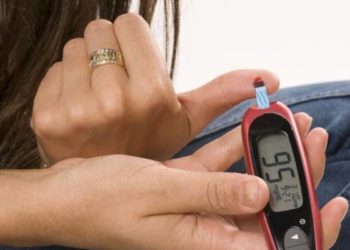Evening chronotype in middle-aged nurses is associated with an increased diabetes risk
1. In this prospective cohort study, middle-aged nurses with an evening chronotype were more likely to develop type two diabetes.
2. Middle-aged nurses with an evening chronotype were more likely to report unhealthy lifestyle behaviors.
Evidence Rating Level: 1 (Excellent)
Study Rundown: Chronotype, or circadian preference, refers to an individual’s preference for earlier or later sleeping times. Evening chronotype is defined as people who prefer to go to bed later at night, get up later in the day, or feel energetic later in the day. Prior research has shown that evening chronotypes are linked to poor metabolic regulation, disrupted glycemic control, metabolic disorders, and higher incidence and prevalence of type two diabetes. However, there is a gap in knowledge as to understanding whether evening chronotype and increased diabetes risk are truly associated with each other. Overall, this study found that middle-aged nurses with an evening chronotype were more likely to have unhealthy lifestyle behaviors and factors compared with those with a morning chronotype, which may contribute to their increased risk for type two diabetes. This study was limited by assessing chronotype using a single question and self-reported data, as well as homogeneity within the study population. Nevertheless, these study’s findings are significant, as they demonstrate that evening chronotype in middle-aged nurses is associated with increased unhealthy lifestyle behaviors and a higher risk of diabetes.
Click to read the study in AIM
Relevant Reading: Evening Chronotype, Circadian Misalignment, and Metabolic Health: Implications for Diabetes Prevention and Beyond
In-Depth [prospective cohort study]: This prospective cohort study used the Nurses’ Health Study II database which consists of predominantly White women who are nurses aged 25 to 42 years. Patients who answered the chronotype question in 2009, had information on lifestyle behaviors, with no clinical diagnoses of diabetes, cancer, and cardiovascular disease in 2009 were eligible for the study. Patients who were lost to follow-up or had missing information on the date of diabetes diagnosis were excluded from the study. The primary outcome measured was chronotype and lifestyle behaviors. Outcomes in the primary analysis were assessed via prevalence ratios and Poisson regression with robust error variance. Based on the primary analysis, the adjusted hazard ratio for diabetes was 1.21 (95% Confidence Interval [CI], 1.09 to 1.35) for the “intermediate” chronotype and 1.72 (95% CI, 1.50 to 1.98) for the “definite evening” chronotype after adjustment for sociodemographic factors, shift work, and family history of diabetes when compared with the “definite morning” chronotype. Further adjustment for body mass index, physical activity, and diet quality attenuated the association by comparing the “definite evening” and “definite morning” chronotypes to 1.31 (95% CI, 1.13 to 1.50), 1.54 (95% CI, 1.34 to 1.77), and 1.59 (95% CI, 1.38 to 1.83), respectively. Overall, this study demonstrates that middle-aged nurses with an evening chronotype are more likely to have unhealthy lifestyle behaviors and a higher risk of developing type two diabetes.
Image: PD
©2023 2 Minute Medicine, Inc. All rights reserved. No works may be reproduced without expressed written consent from 2 Minute Medicine, Inc. Inquire about licensing here. No article should be construed as medical advice and is not intended as such by the authors or by 2 Minute Medicine, Inc.









